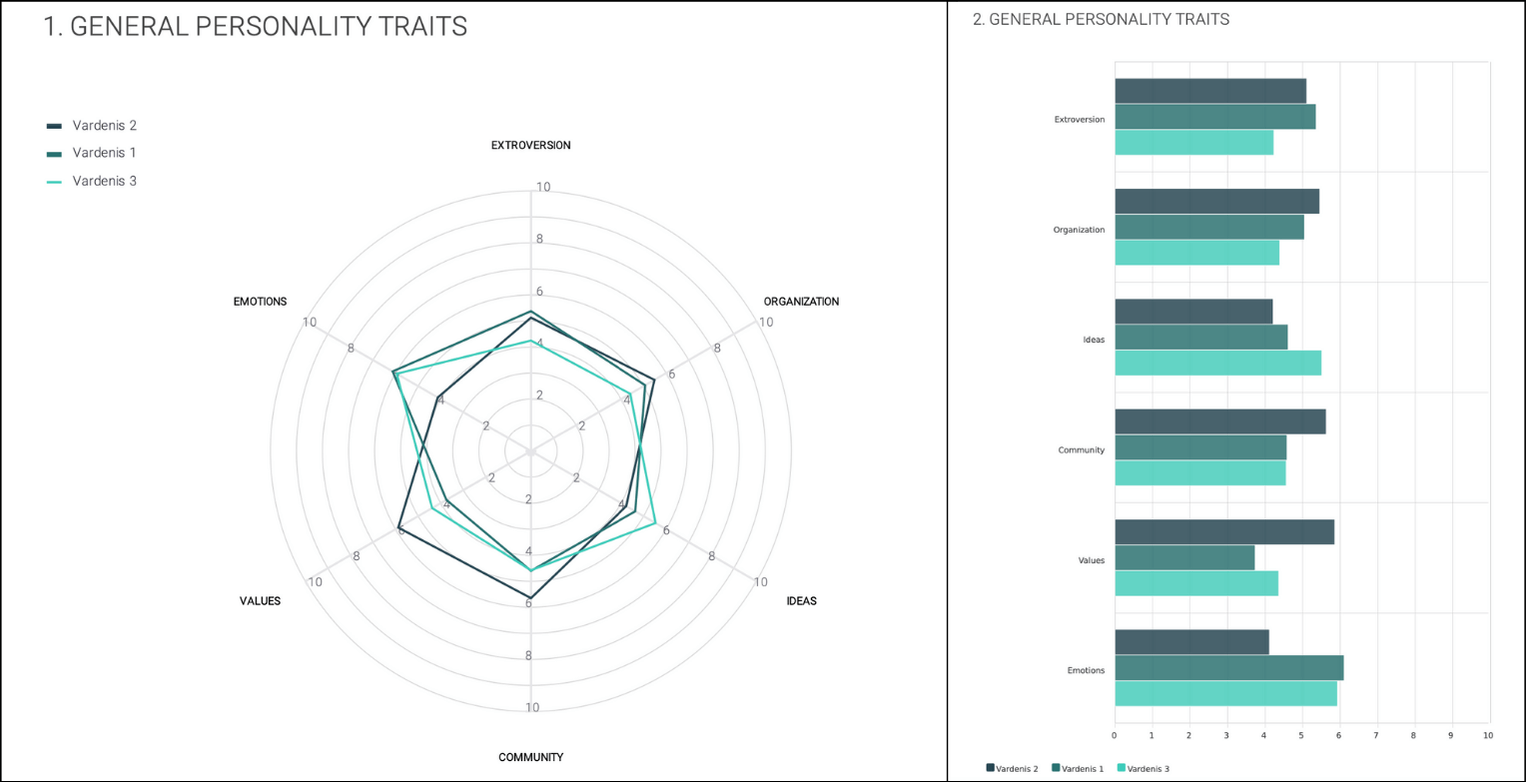We frequently discuss technical knowledge and skills, often neglecting the importance of valuing personality. The strength of any organisation is its team. But how often do we ask ourselves: How to work effectively with our team?
It is possible to have technically strong team members but still not make progress. Why? Because you need not just strong team members but a strong team.
It’s not enough to hire knowledge and skills; you also need to hire the right attitude that aligns with your company’s values.
We develop employees’ abilities to program, write, calculate, etc., but we do not teach them how to work together, assuming that this is self-evident. Unfortunately…
Understanding the Team
The first and most fundamental step is to understand your team. Where to start? Assess the personal traits of your team members.
a. Personal Traits of Team Members
Everyone must first understand themselves better. After all, who knows you better than yourself? And yet, this is not always the case. By using the UNLOCK Personality test, you get a detailed personality profile that allows you to view yourself from the outside: what is important to you? What motivates or demotivates you? What kinds of tasks suit you best based on your personal traits? And most importantly, you understand the motives behind your behaviour.
b. Teamwork Traits
After understanding yourself on an individual level, you can proceed to the team level. How do you work in a team and how does the team work? What are your similarities and differences? What causes friction or misunderstandings? How to approach different colleagues?
Here are a few examples of what this might look like:
- You are highly sociable – you like to communicate, maintain contact, and are the type who greets everyone when you come into the office. Your colleague, on the other hand, is quieter and you try to engage them, but unsuccessfully. The approach should be different – give your colleague more personal space as they have lower sociability and prefer to work in silence and independently.
- You are highly creative – many different ideas come to mind, and brainstorming is your favourite activity. You expect the same from others and invite the team to come up with new ideas together. However, you have colleagues who typically do not come up with ideas – how so? They have lower creativity – innovative ideas do not come easily to them, and they will be the ones to implement the ideas once clearly formulated tasks are provided. Leave the creative process to the creative ones, and pass on the generated and crystallized ideas to those with less creativity.
- You prefer to make decisions independently, consulting with yourself and deciding how to proceed. Meanwhile, you have a colleague who constantly seeks your advice even though they have been working for a decade and could make decisions themselves. You do not understand why they need to consult, but you do not understand because the colleague is highly open and needs validation even when they know the answer. Therefore, it is important to give them space.
- You have lower sensitivity – you make decisions rationally, do not let emotions affect your relationships with colleagues, and praise them only for results – if there are no results, there is nothing to discuss. On the other hand, your colleague reacts more sensitively to various situations because they are higher in sensitivity, making decisions based on emotions and empathy for others. It is important for them not only to be praised for the result but also for their efforts. Even if something did not work out, they tried and want to be recognized.
During team sessions, we observe how colleagues quickly gain new perspectives on themselves and others and understand why it is not always possible to find common ground, as what suits and pleases you may not necessarily suit another colleague, especially if they are different from you. Our biggest task is to learn to work with those who are different from us, as working with similar ones is easiest, but the success of a team lies in its diversity.
c. What Traits Are Missing in the Team?
Understanding the team through personality profiles also helps assess what might be missing in the team.
- For example, if your team members are enthusiastic, full of optimism and energy, and often dive into new ventures headfirst without assessing risks – next time you look to add to the team, consider finding a colleague with lower enthusiasm who can slow things down a bit and evaluate the pros and cons before embarking on something new.
- If your team has a lower level of perfectionism and mistakes occur frequently, then the team needs a colleague with higher perfectionism who will be meticulous and attentive.
These are just a few examples of what might be happening in your team. How to evaluate all this? With the UNLOCK Personality test, you can easily create group reports and view the team from a new perspective, as the test evaluates 6 personality factors, 24 personality traits, and 8 team roles.

Example of Team Group Report
Use UNLOCK Personality tests. They are a great tool for understanding yourself and your colleagues, seeing how you fit into the team, and understanding why friction or misunderstandings occur through the lens of personality. Order a 3-hour UNLOCK Personality team session or full-day training – take the time to get to know your employees from a new angle.
And, of course, use personality tests in the recruitment process: https://unlocktest.com/personality-test-in-recruitment/
Related articles
UNLOCK Tests platform for your business
